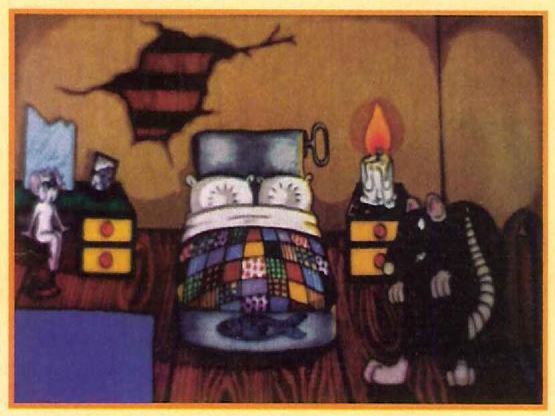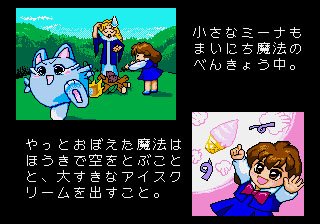Fireteam Rogue is a canceled sci-fi action-adventure game published and developed by Accolade Inc. from 1993 to 1995 for the Super NES and the Genesis/Megadrive. The project was very ambitious for its time, as Accolade planned to launch alongside the game a comic book serie, with also discussion for action figure toys and a TV show.
Next information that will follow are from SNESCentral which was one of the first website to share many details as possible about this title. With a budget of 2,000,000 US $, this project was plagued by mismanagement that ultimately led to its cancellation:
Fireteam Rogue’s cancellation is probably due to having too much ambition. The people marketing the game claimed it would have 100 hours of gameplay, and that the characters would be larger than in most other action games. Personality conflicts and poor management due to this goal seem to have taken their toll, as stated by Russell Borogove (Bornschlegel):
“The project had a lot of problems in development. We spent a lot more time developing ridiculous data compression schemes to fit all the levels into the game, when we should have cut a couple of enemies and a handful of levels in order to get it done. There were also some personality conflicts that culminated with the producer of the project quitting when we were at beta. Shortly after that, the head of product development at Accolade asked us if we thought we should continue the project or not. It was unclear to me how much more work it was going to take to finish it and if the game was going to be good enough to compete in the market by the time we actually got it out, and I advised that we should shut it down. I don’t remember what the others said.”
The late Betty Cunningham on her website claims the game was complete. And it may well have been close to being finished. By the sounds of things, as development dragged on, it was increasingly clear it would not have been released. As artist Scott Ruggels recalls:
“Both of the game projects (Fireteam Rogue and the unreleased Genesis game, Cybernauts: The Next Breed) were helmed by John Skeel. I don’t know what happened to him after Accolade, but after the 2 million dollar budget for the game was spent, with about 750,000 spent on promotional materials, including a 6 foot tall roll of plastic with a life sized image of the main character computer generated within, and the prototype, that was, in all honesty, not very much fun to play, the game was cancelled, along with a lot of others soon after the new management took over, (…)”
The media give differing times for the ultimate cancellation. Gamepro, in its April 1995 issue states it was cancelled, coinciding with Warner Music Group buying a share in the company. Nintendo Power kept it in its upcoming releases section until the August 1995 issue. Ultimately, a long development cycle can never be good for a game.
Two different prototypes exist and their source codes are both available on the web. The first prototype is apparently in early alpha and might be dated from 1994. It was leaked somewhere around 2006-2007 and is pretty incomplete and glitchy. A much later prototype was acquired in 2010 by Evan G., founder and owner of SNESCentral and is dated from 1995, although it is not clear from which month:
This later prototype of Fireteam Rogue was acquired by me in June 2010. The seller worked at a company called IMN Control. They were looking into publishing games to package with their controllers, and I guess by April 1995 (the letter that came with the prototype was dated April 6, 1995), Accolade was hoping to get another company to publish the game. The seller said that he did not feel the game would be complete in a reasonable amount of time to bother investing.
In addition to the prototype, there were some marketing materials and a three page FAQ. The FAQ explains the different levels, characters and goal of the game. There is a date of December 12, 1994 on the header of the FAQ. The package included a poster/information sheet that probably was used at the 1995 Winter CES. The poster has an expected March 1995 release date. The prototype itself came on four chips, with a date of “1/16” on it, which I assume means January 16, 1995. I guess that despite the fact that the prototype was sent in April 1995, either development had ceased, or they did not feel like burning a newer copy.
This prototype appeared to be more complete and less glitchy with the addition of Mode 7 levels and a password feature.
On his own article, Evan G. concluded:
Fireteam Rogue is definitely a game that had promise. It had an intriguing plot, excellent character artwork and a promising gameplay system. The Shadowblade level in particular shows the scope of what the levels may have entailed. The shooter levels play quite well and compare favourably with many similarly styled shooters for the SNES.
That being said, the two alpha ROM images available show a game that is not close to completion. Though I was told development may have extended all the way to 1996, the evidence seems to indicate that it was leading towards demise in early 1995. In particular, the statement in Gamepro in April 1995 and the fact that they were trying to find another company to publish the game show that its fate was decided by then. If the later alpha that I have is what was shown at the 1995 Winter CES (which I assume, considering the date on the prototype, and the included CES-style advertisement sheet), it would have had an underwhelming response. For instance, despite the impressive size and animation frames of the character sprites, the animation was not smooth, and led to unresponsive controls. The level designs are poor, and lack the key items to proceed through the stages. The graphics themselves don’t look bad, though they have a limited palette. The promised linking of the levels into a single story was not finished in the game.
The lesson of Fireteam Rogue is that focusing on hype and story before the creation of solid level design and gameplay can sink a game. The back-story of Fireteam Rogue rivals most contemporary RPGs, and the initial gameplay ideas could have rivalled Super Metroid. Instead, a development cycle mired by poor management and delays made this just another footnote in the history of the 16-bit era.
In October 1996, Accolade Inc. released a DOS game called Eradicator in which three different characters are playable. Those characters shares many similarities with the 4 main characters of Fireteam Rogue.
Thanks to Evan G. from SNESCentral!
Images:
Videos:


